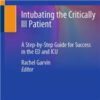ECPR for Hypothermic Refractory Cardiac Arrests in Temperate Climates
sjtrem.biomedcentral.comAccidental hypothermia designates an unintentional drop in body temperature below 35 °C. There is a major risk of ventricular fibrillation below 28 °C and cardiac arrest is almost inevitable below 24 °C.
In such cases, conventional cardiopulmonary resuscitation is often inefficient.
In urban areas with temperate climates, characterized by mild year-round temperatures, the outcome of patients with refractory hypothermic out-of-hospital cardiac arrest (OHCA) treated with extracorporeal cardiopulmonary resuscitation (ECPR) remains uncertain.
A total of 36 patients were analyzed, 15 of whom (42%) survived at 28 days, including 13 (36%) with good neurological outcomes.
Within the asphyxic subgroup, only 1 (10%) patient survived at 28 days, with poor neurological outcomes.

















